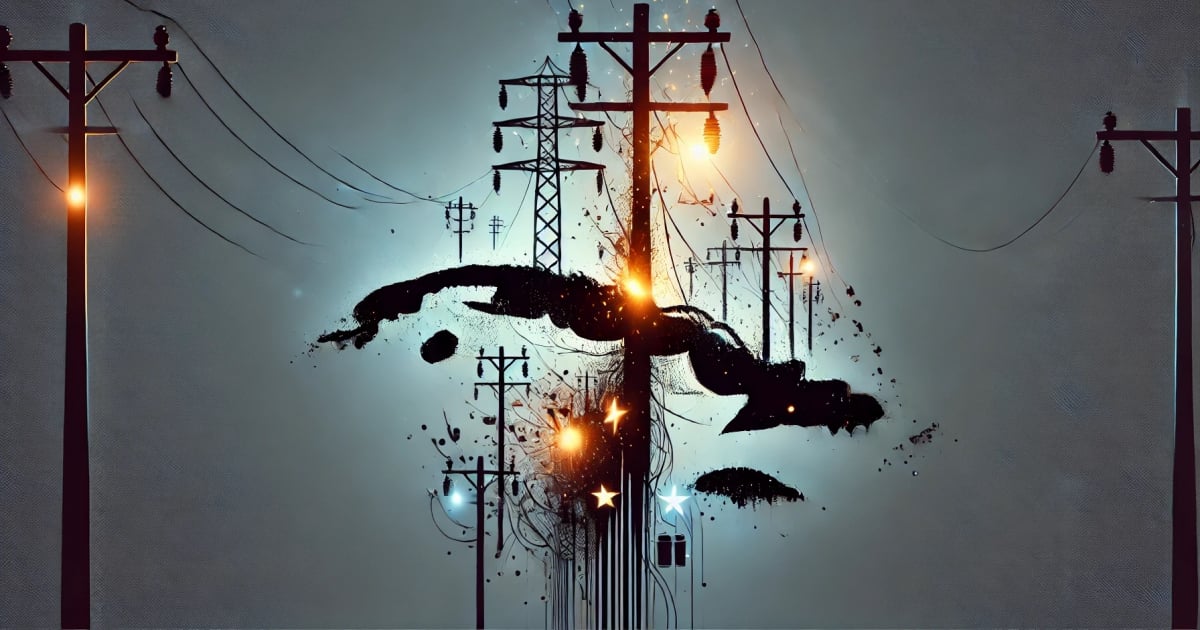
On September 18th, Cuba once again faces blackouts affecting several provinces of the country, worsening the already delicate energy situation that the island is experiencing. According to information provided by the Electric Union (UNE), disruptions exceeding 1,000 MW are forecasted across the national territory, which has generated discontent among the population, facing service interruptions for long hours.
Provinces affected by blackouts
Among the most affected provinces are Havana, Santiago de Cuba, and Pinar del Río. The recurrent blackouts have complicated the daily lives of Cubans, who are also dealing with a shortage of basic goods. The energy crisis has prompted protests on social media, where citizens express their discontent with the lack of concrete responses from the government.
Generators donated by China arrive.
Amid this crisis, Cuba has received a donation of 10 electric generators from China, which are expected to partially alleviate the deficiencies in the energy supply. The generators will be distributed to the main power generation plants in the country. However, experts in the energy sector warn that the arrival of this equipment will not definitively solve the structural problem of energy in Cuba, and the population will continue to face supply outages.
Food crisis and reports of shortages
The economic situation also remains alarming. Residents of Havana have reported that they have not received toothpaste in their ration books for half a year, illustrating the severe crisis of essential goods on the island. This chronic shortage has led to the proliferation of the black market, where the prices of these basic products skyrocket, putting them out of reach for many Cubans.
Criminal acts on the rise
In the police realm, the arrest of a Cuban in Italy for electricity theft was reported, an incident that reflects the growing ingenuity of Cuban citizens abroad in facing economic hardship. Additionally, in Cienfuegos, the police dismantled a gang responsible for million-dollar robberies in houses in the province, highlighting the increase in crime in various areas of the country.
Inspections of bakeries and complaints from the population
The Cuban government has begun inspections of bakeries following the controversial decision to reduce the weight of bread. This measure has generated strong criticism among consumers, who see how the quality and quantity of products continue to decrease while prices keep rising.
Police intervene in a well-known restaurant in Santiago de Cuba.
In the midst of the regime's offensive against private businesses, the Cuban Police intervened in a well-known restaurant in Santiago de Cuba, located in the old Plaza de la Calle Aguilera and Padre Pico. Independent journalist Yosmany Mayeta Labrada shared photos on Facebook of police officers and government inspectors entering the establishment.
"They took everything," he said. According to Mayeta, it is presumed that the restaurant was opened with a million-dollar embezzlement. "After the closure of the establishment, there are many rumors about the million-dollar figure and the supposed owners behind the business, which connect to the secretary of the Party in the city," he specified.
This incident reflects the increasing intervention of the State in private businesses, especially those considered suspicious of corruption and ties to figures of the Communist Party.
Closure of business due to non-compliance with electronic payment
An inspection by the Ministry of Domestic Trade (MINCIN), conducted during the first week of September, resulted in the closure of 58 businesses for failing to use electronic channels for the payment of goods and services. Deputy Minister Inalvis Smith Lubén explained that 384 fines were imposed for a total of 1,044,515 pesos and 17 business authorizations were revoked.
The measure mainly affects self-employed workers, who have expressed their rejection of the banking process implemented by the government. This closure is part of efforts to force businesses to use digital payment systems.
Heart-stopping Tuesday for the electricity generation in Cuba
With over 1,300 MW of blackouts on Tuesday, September 17, the day was critical for the customers of the Unión Eléctrica de Cuba (UNE). Social media was filled with complaints from users reporting massive blackouts lasting up to 16 hours in various locations across the country.
On the Telegram channel of the Electric Company of Mayabeque, it was reported that around 9:00 p.m., there were more than 1,336 MW offline due to a generation capacity deficit. The state-owned company indicated that the maximum demand would reach 3,200 MW, but only 58.25% of that demand could be met.
The deficit severely affected provinces such as Havana, Mayabeque, and other regions of the country.
Bail of 100 thousand pesos for detained person in Santiago de Cuba
Luis Ángel Ríos Cala, a resident of Aguacate in Santiago de Cuba, was arrested after publicly complaining about three murders that occurred in the past year in his area. Authorities imposed a bail of 100,000 pesos for his release.
Ríos Cala expressed his frustration during the funeral of Arianni Céspedes, who was murdered on September 14. His comment highlighted the recent crimes and the apparent impunity in Aguacate, which has faced a growing wave of violence and corruption.
What do you think?
COMMENTFiled under: